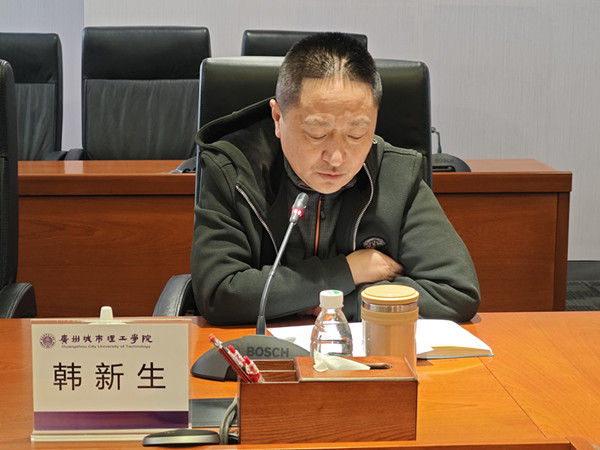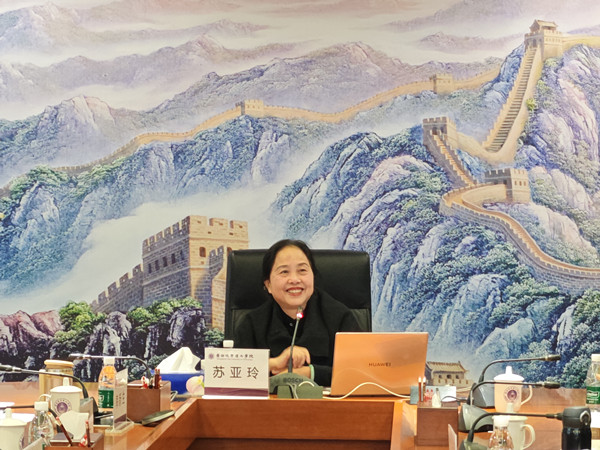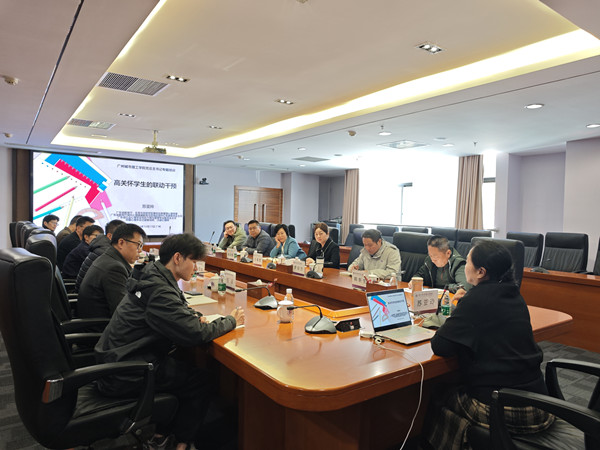
Latest >
- GCUT held the opening ceremony of the Joint Laboratory of Urban Connectivity and Energy-Saving Technology that is jointly built in cooperation with SCUT
- Two works of lacquer painting created by GCUT’s teacher were selected by the Chinese (Ningbo Beilun) Youth Lacquer Painting Exhibition for the first time
- GCUT held a training meeting for psychological crisis intervention of college students
- Huawei ICT Academy of GCUT was officially established
- GCUT outshines in the ASEAN-China Education Expo
- GCUT’s library held an activity to show concerns for students who are about to take national postgraduate entrance exam
- GCUT held Campus Food Festival themed on “Delicious Food Awaits You”
- GCUT organized the first Annual Academic Conference on Industry -University-Research Innovation
- GCUT held reading activities to advance the belief that “reading is to the mind”
- Language Services Empowering Enterprise Internationalization: GCUT held the first forum on cultivation via cooperation between colleges and businesses
GCUT held a training meeting for psychological crisis intervention of college students
Time:2024-12-27 Page views:11
Guangzhou City University of Technology (GCUT) held a training meeting for psychological crisis intervention of college students on December 17 to enhance its schools’ capacities in preventing and dealing with students’ psychological crisis while promoting GCUT to carry out mental health education. Related leadership from GCUT’s schools and psychology teachers attended the training. Han Xinsheng, deputy director of GCUT’s Students Affairs Office hosted the meeting.
Professor Su Yaling was invited to present a lecture, who is responsible for over 10 social positions, including registered supervisor and chartered psychologist of the Chinese Psychological Society, senior examiner of China’s professional psychological counselor, chief expert of the Training and Study Base for Counsellor of the Ministry of Education of the People’ s Republic of China (South China Normal University), psychologist for Contingency Management for Emergencies of Guangdong Provincial Department of Education and Dongguan Municipal Government, director the Specialized Committee on Crisis Intervention and Management of Guangdong Social Psychological Association (under preparation) and deputy director of Guangdong Specialized Committee of Mental Health Education and Consultation of College Students. It reveals that Professor Su has rich experience in mental health education of college students and psychological crisis intervention. Han Xinsheng extended a warm welcome to Su Yaling, and then introduced the purpose and meaning of the training, emphasizing the significance for members from the team of student affairs management to establish a sense of crisis and a sense of responsibility before the training started.

Han Xinsheng, deputy director of GCUT’s Students Affairs Office hosted the meeting
Su Yaling adopted the way of “explaining whilst discussion” that allows instant interactions during the training. She illustrated the importance of the sense of crisis to schools in the psychological crisis intervention through series of cases, stressing the fact that psychology work should be carried out in students’ daily life while teachers should pay attention to students’ mental health. Therefore, teachers need to be careful about their ways and methods of communicating with students, thus establishing trustworthy relationship with them. Meanwhile, Su Yaling reminded participants about the significance of psychological interviews with introducing outlines of psychological interviews and part of the Chinese-version of the MINI-International Neuropsychiatric Interview as references for participants, and suggested that related leaderships of schools should serve as leaders and instructors of counsellor in psychological interviews. She concluded the major roles of the team of counsellor in mental health education. While shouldering the work of students’ mental health, such team is also responsible for organizing publicity of knowledge about mental health, which helps students to form an optimistic and positive attitude and leads the direction of counsellor’s psychology work. Moreover, she emphasized that universities should establish related mechanisms on psychological crisis intervention, pointing out that the work of students’ mental health cannot leave without the coordination and support of every department within a university. Consequently, each department should fulfill its own duty while paying attention to cooperating with other departments. Eventually, Su Yaling stressed that students should be the priority throughout their work, so they should strive to take care of students’ mental health through putting themselves in students’ shoes. Moreover, it is necessary to establish the mechanism of “a team for each case and individual”, which enables them to analyze and make decisions based on the latest situation in time. Meanwhile, psychology teachers should receive professional guidance on psychological supervision, thus ensuring their professional competence while avoiding ethical and legal risks.


Participants played an active part in asking questions such as communications between parents and the university, and difficulties in related work during the training, based on which they also discussed. Besides, they shared their views and achievements regarding their work of students’ mental health.
After the training meeting, participants put forward that they had learned a lot. For example, Fu Hongxun said, “Professor Su presented a gorgeous lecture, during which I have fully concentrated on. It is instructive for our work.” Such training helps the leading team of psychological crisis intervention to deepen their understandings of goals and strategies of psychological crisis intervention. In this way, they can make better decisions in terms of complex problems, thus guiding their teams effectively.




